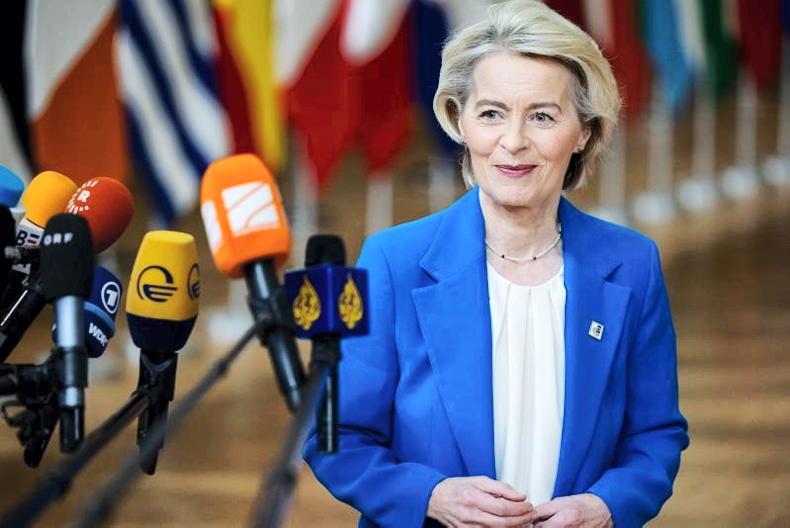The spread of coronavirus not only presents the EU with one of the most profound challenges it has faced in its history, but also one of the greatest opportunities to show to its citizens the power of solidarity. Which prevails will largely be determined by how EU leaders respond to the crisis.
If, in the months ahead, societies within vulnerable member states conclude that the EU response to the pandemic was inadequate and contributed to the loss of life and personal suffering, then solidarity across the union will be severely tested. It comes at a fragile time, with both Brexit and the legacy of the EU’s faltering response to the banking crisis still front of mind in many member states.
Unfortunately, far from reinforcing solidarity, last week’s video conference by EU leaders exposed the divide that exists between member states on economic policy.
If, in the months ahead, societies within vulnerable member states conclude that the EU response to the pandemic was inadequate and contributed to the loss of life and personal suffering, then solidarity across the union will be severely tested
The meeting concluded without any common economic response, with leaders effectively opting for a two-week window to come up with new financial support mechanisms. As Colm McCarthy reports on page 25, it is in stark contrast to both the Bank of Japan and the US Federal Reserve that have both acted swiftly and made clear that they will buy government debt without limits.
There had been calls for the EU to take a similar approach with the European Central Bank (ECB) providing funding to national governments through “corona bonds” – effectively a financial instrument that would see all member states taking collective ownership for the debt liability associated with tackling the spread of coronavirus and rebuilding economies.
While nine EU countries including Ireland, France, Italy and Spain supported the measure, the fiscally conservative “frugal four” of Germany, the Netherlands, Austria and Finland, opposed its introduction. The long-term consequences of this division and the potential for a full-blown political row at a time when member states are effectively at war with this deadly virus cannot be underestimated.
The long-term consequences of this division and the potential for a full-blown political row at a time when member states are effectively at war with this deadly virus cannot be underestimated
Division leading to a flat-footed response would provide a huge boost to far right nationalist parties. In Italy, where the virus has hit hardest, support for these parties is reported to be strengthening, with some predicting if the trend were to continue, the next parliamentary elections could see a far right nationalist coalition – putting the country on a collision course with its EU partners.
Of course on the flipside, a solid and sure-footed response by the EU to help member states provides one of the best opportunities since the formation of the EEC in 1957 to show the real power of solidarity. The introduction of the €750bn Pandemic Emergency Purchase Programme (PEPP) by the ECB is a prime example of the collective power of the EU. The bond-buying programme has significantly reduced the rate at which national governments can borrow money, allowing them provide additional support to their citizens.
It is critical that in the days and weeks ahead that the EU demonstrates to its citizens the power of the union
But more is clearly needed. It is critical that in the days and weeks ahead that the EU demonstrates to its citizens the power of the union. To do this, the debate must quickly move beyond the correct financial mechanism and instead focus on the need to get the necessary economic assistance to the member states.
Ultimately if the appetite exists the ECB, as the only institution that can finance national governments, can deliver what is required. An unconditional commitment from the ECB that it stands ready to buy as many bonds as necessary would provide member states with the financial security to access whatever funding is required.
This will of course require a leap of faith by the “frugal four” but they will be well aware that the economic impact of a eurozone fragmentation, triggering a global financial crisis on their respective economies, would dwarf the potential liability of an ECB bond-buying scheme.
What is required from the EU by its citizens is very clear – mount a response that reflects the pace and severity with which the spread of coronavirus is impacting on people’s health and livelihoods. If the EU finds the ability to respond adequately, it can be a defining moment of solidarity among member states. If not, and some member states feel left behind, the space is created for more nationalistic, Brexit-type movements to thrive and the threat to the euro and wider EU project itself is very real.










SHARING OPTIONS